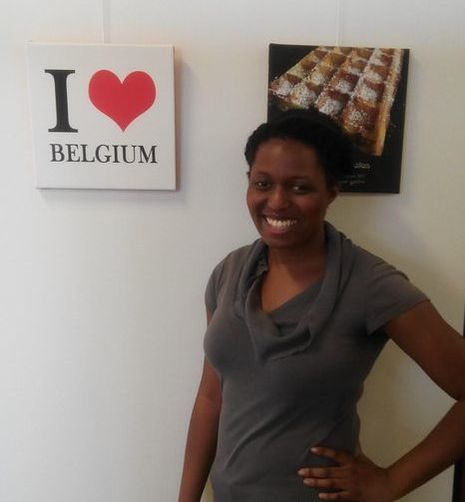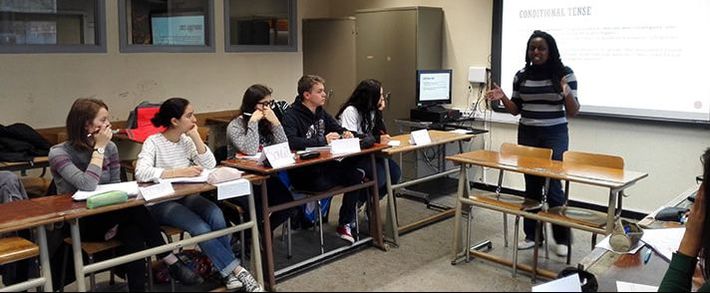|
The metro lines reopened in Brussels for the first time on Friday. They ran on a limited schedule with a reduced number of stops. At Belgica, fewer than 20 people were waiting for the first metro. When it arrived, I was one of four passengers who boarded.
The bus I caught later in the morning was also bare. As we left the station, I watched a military truck back into the entrance of Bockstael station. If this is to be Brussels’ new normal, it feels like déjà vu. In November after the Paris attacks, when the authorities feared an imminent threat, the city went into its highest security level. The metro was closed, and armed guards and police patrolled the streets. In both instances, I quarantined myself in my room for a few days, scouring the news for any confirmation that the world was safe again. Of course it was not, and truthfully, never was. At some point in my childhood, around the time the Disney Channel wasn’t cool anymore, terrorism inserted itself as another staple of adolescence. You could argue that it began with 9/11, but that narrative is too simple to be true. The events of last Tuesday were a disturbing violation of the trust that I have in humankind, but I’m no more scared now than I was last November. I’m no more scared now than I was when Dylan Roof walked into one of my sister AME churches and killed nine people in the name of white supremacy. Terrorism is a part of American history. Its roots extend beyond groups like the KKK, to Manifest Destiny, the once sacred principle that drove white Americans west and indigenous Americans into ethnic cleansing. I live in a world where my mother is equally concerned about her young black son living near Sanford, Florida, as she is for her Fulbright scholar in Brussels.
1 Comment
I’ve been planning out my life since I was in middle school. I wanted to be a musician and a journalist. After reading The Hot Zone, I briefly went into a period when I was certain that I would also add virologist to my many titles. Then, as I transitioned into high school that dream turned away from music and science, and towards storytelling. I wanted to be an author and after a year in college I knew that I wanted to obtain my PhD in Creative Writing and become a professor.
I never imagined living abroad and teaching English in those plans because it always seemed unattainable. I’d never been able to afford study abroad in school and while my major was in the English department—creative writing degrees are much more about how to poetically break every rule of English than grammar and conjugation. However, during the summer of 2014 I decided to take a gamble and finish my application for Fulbright. Gambles aren’t exactly my fortitudes and I wish I had a poetic reason for going through with it. My French was becoming dismal when I applied and for the past year all I had lived and breathed was my honors thesis. When I started this process I told myself that the reason I was applying to Fulbright was because it would be great practice for those pesky graduate school applications that were right around the corner. However, during July when I was rewriting personal statement essays between babysitting my cousin and working part-time, I realized that I needed this gamble because I’d done too many revisions on my life’s projection. I applied because I needed change. Fortunately, there’s nothing quite like 75 teenagers to help provide a new challenge. |
Archives
September 2017
Categories
All
|


 RSS Feed
RSS Feed
